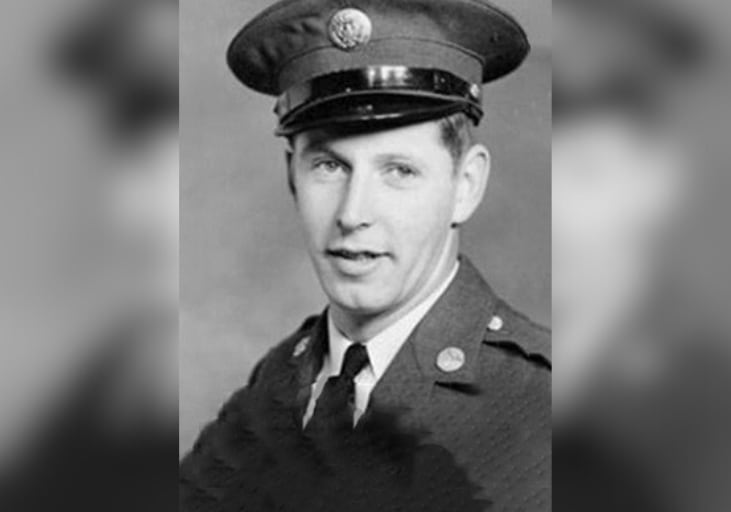On Jan. 29, 2006, newly minted ABC News Anchor Bob Woodruff and cameraman Doug Vogt were shooting a story 12 miles north of Baghdad when the tank they were riding in was struck by a roadside bomb.
Both men were seriously injured, with Woodruff suffering wounds to his face and neck that were so terrible, his producers began contemplating his obituary.
But Woodruff didn't die that day in Taji. Instead, he fought against impossible odds, enduring a monthlong medically induced coma, partial removal of his skull and multiple surgeries to repair his shredded blood vessels, muscles and nerves.
Within 13 months, Woodruff was back on air, working to get his career back on track.
But the experience not only changed Woodruff mentally and physically, it exposed him and wife, Lee Woodruff, to a world with which they were totally unfamiliar: the embedded patient and spouse at Landstuhl Regional Medical Center, Germany, and the National Naval Medical Center in Bethesda, Maryland, where they spent nearly three months.
"There were legions of people whose lives had changed in an instant and who had spent months, years and even decades trying to put everything back together," Lee Woodruff wrote in the couple's book, "In an Instant," speaking of those she met who have endured brain injuries. "It was the people we met on the road, the military families and civilians, who taught us all how much more help is needed."
And the Bob Woodruff Foundation was born.
On the 10th anniversary of Bob Woodruff's "Alive Day" — the phrase in military circles sometimes used to mark the date of a nearly life-ending injury — the Woodruffs and hundreds of veterans organizations are celebrating the birth of the New York-based nonprofit that has raised more than $30 million to help injured post-9/11 service members and their families.
The Bob Woodruff Foundation has provided grant money to 275 military and veterans programs, helping an estimated 2 million service members, according to foundation officials.
Programs that have received funding from the organization include Team Rubicon's Clay Hunt Fellowship, which helps veterans transition to civilian leadership jobs; the Maryland-based Warrior Care Connection, which teaches former troops to train service dogs; Project Healing Waters fly-fishing rehabilitation program for service members with physical and mental health conditions, and more.
"Being in the media, Bob put a familiar face on the fact that injuries like these were happening every day," said executive director Anne Marie Dougherty.
A foundation spokesman said Bob Woodruff will be celebrating the day quietly in Beijing, where he works as ABC's China correspondent.
"He's the type of person that doesn't want it to be about him — he wants the focus to be about the foundation and the troops," spokesman Sam Kille said Monday.
But journalists, veterans and military family members have flooded Twitter with best wishes for Woodruff and thanks from the community.
Retired Army Gen. Martin Dempsey, former chairman of the Joint Chiefs of Staff, said that for injured military personnel and veterans, "It's hard to imagine a world without the decade of support that has followed since" Woodruff was injured.
"The Bob Woodruff Foundation has proven itself more than capable of ensuring that the needs of our veterans are being addressed, while investing in the longer-term needs that have yet to be realized," Dempsey said in a release.
In a blog post written for her husband on his Alive Day, Lee Woodruff wrote of her pride in her husband and expressed thanks for their luck.
"'A hand up,' you always say, 'not a hand out.' You used your experience to start a foundation to help injured service members and their families who were not getting the care and assistance they deserve from our country," Lee Woodruff wrote.
Woodruff continues to work as a journalist, but with his injuries, he may never regain the anchor position. As for his charity work:
"There is no single civilian in all of America who has done more to support the post-9/11 veterans community," Iraq and Afghanistan Veterans of America's Paul Reickhoff said. "His ability to use his near-death experience to create significant change in the lives of post-9/11 veterans and their families is a testament to the commitment he has to our community."
Patricia Kime covers military and veterans' health care and medicine for Military Times. She can be reached at pkime@militarytimes.com.
Patricia Kime is a senior writer covering military and veterans health care, medicine and personnel issues.





